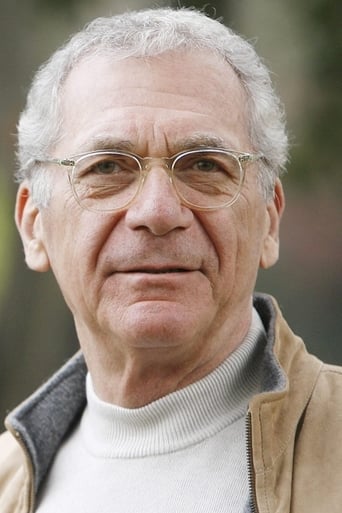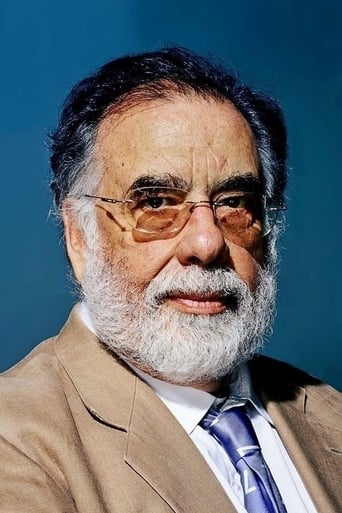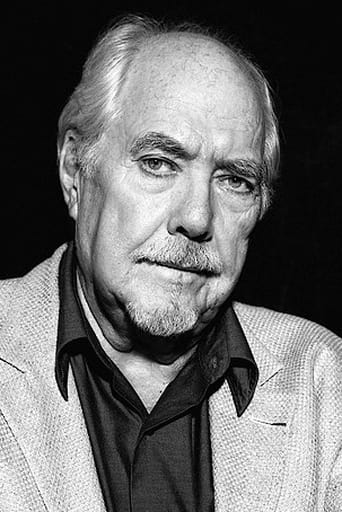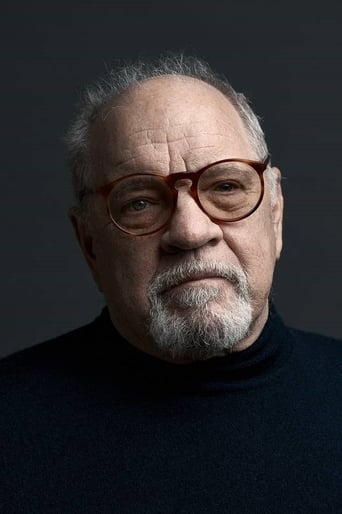Smartorhypo
Highly Overrated But Still Good
TaryBiggBall
It was OK. I don't see why everyone loves it so much. It wasn't very smart or deep or well-directed.
Lollivan
It's the kind of movie you'll want to see a second time with someone who hasn't seen it yet, to remember what it was like to watch it for the first time.
Sameer Callahan
It really made me laugh, but for some moments I was tearing up because I could relate so much.
moonspinner55
Fine documentary on the changing of the guard in cinema, 1969-1979, when independent film companies began churning out more relevant and successful movies than the major studios, and audiences (young people attracted to counterculture cinema) dictated what was a hit and which actors were the new stars. Many terrific interviews with the filmmakers of the time are included (Sidney Lumet, Paul Schrader, Sydney Pollack, Martin Scorsese, William Friedkin, Jerry Schatzberg, Francis Ford Coppola, Robert Altman, Peter Bogdanovich, John G. Avildsen, Milos Forman, Robert Towne, Roger Corman and Dennis Hopper), yet the two directors who changed the face of '70s cinema (which was changing rapidly, anyway), Steven Spielberg and George Lucas, are absent. Spielberg's "Jaws" in 1975 and Lucas' "Star Wars" in 1977 brought adventure and fantasy back to moviegoers who had been pummeled over the head with Vietnam and Watergate and the sexual revolution. "Star Wars" also brought in a new strategy for making millions of extra bucks, through merchandising. This turned an industry, which seven years before had begun to embrace the anti-establishment tale of the anti-hero, into a money-making monster, with blockbusters designed for the whole family. Although not as concise as 2003's "Easy Riders, Raging Bulls: How the Sex, Drugs and Rock 'N' Roll Generation Saved Hollywood", this document pretty much covers the same territory--and, similarly, under-utilizes the female perspective (here we have production designer Polly Platt and actresses Pam Grier, Ellen Burstyn and Julie Christie relating their experiences from the female point of view, but that's it). Directors Ted Demme (to whom the film is dedicated, posthumously) and Richard LaGravenese make some minor mistakes (for instance, a still from "The Exorcist" is actually that of "Exorcist II: The Heretic"), but their clips are well-used and their interviews are colorful and informative. **1/2 from ****
Red-Barracuda
This documentary is based on the idea that the 70's was the most influential decade in American cinema history; seeing as this is an opinion that I have always agreed with I am essentially on-board right away. The subject matter more specifically is about the emergence of the New Hollywood. Strictly speaking this was a period that began about 1967; it was in full bloom until the early 70's but didn't properly die out until round about the dawn of the 80's. The period was characterised by personal director-led films. These were quite a lot less commercial and a lot more left-field than Hollywood had produced previously. They were effectively a response to the box-office disasters of several big budget studio pictures that had failed to find an audience in the counter-cultural times of the late 60's. Once Bonnie and Clyde, The Graduate and Easy Rider were released to huge success, the studios figured that these types of films were the new way forward and would make them a lot of money. It turned out they were only partially right, as while many of the New Hollywood movies were successful in critical terms, not many made a lot of money. And once Steven Spielberg and George Lucas released Jaws and Star Wars, respectively, the age of the blockbuster arrived and it has been thus ever since.As a fan of this period of films I naturally thoroughly enjoyed A Decade Under the Influence. It does have to be admitted though that it is hardly an even handed examination. The view clearly stated is that this was a great time for movies and there is very little in the way of critical counter-views. I don't consider this to be a major problem as this is about shining a torch positively on an interesting period of cinema but it is at least worth acknowledging it. It might have strengthened the documentary overall if there had been some examples of the failures of the movement.Pleasingly, there are clips from many films. It made me realise how many of these films I haven't even seen yet and the segments are certainly well chosen, which is not a given in these types of docs. The structure is of the talking heads format. We hear the views of directors, actors and writers from the period. We learn a lot about their motivations and about the historical context that informed them like Vietnam and Watergate. These were turbulent times in the United States, the upshot is that a lot of great contemporary art was produced, not just in movies of course but also in books and music too. I think all these things came together at one time and the results are there for all to see. If you are interested in the subject then may I suggest also reading Peter Biskind's excellent book on the subject 'Easy Riders, Raging Bulls' – there was a documentary made of that too and while it was good, for my money this one is better.
ShootingShark
A documentary dealing with American films made in the nineteen-seventies, with major emphasis on experimentation with new styles of cinematic expression and departure from the traditional style of film production.It's tough to generalise, but I think the seventies is my favourite decade of film. This is a quality documentary about that period, which correctly identifies my reasons for feeling that way - the waning big studios giving rise to the auteur, non-prohibitive costs and the first "movie-brat" generation of film school graduates. However, it then turns into an all too predictable film critics' textbook examining how cinema reflected the social upheaval of the period and champions the usual directors - Altman, Hal Ashby, Bogdanovich, Coppola, Pollack, Scorsese and so on - and their de-Hollywoodised, European-influenced approach. It even goes so far as to hint that the huge successes of Steven Spielberg and George Lucas (who had the temerity to make imaginative, exciting, crowd-pleasing genre pictures) killed artistic creativity and put the studios back on top, a suggestion which pisses me off to no end. Everybody has different tastes - I love Coppola and I can't stand Altman - but I find it ironic that although the films discussed and the interviewees are almost always championing anti-establishment stances, by doing so the documentary is virtually a propaganda film for cinema's Critical Establishment. Some of the comments are spot-on (Dern's analysis of the difference between his acting generation and the preceding one, Schrader's synopsis of the big studios' transition from factories to banks), some are wildly inaccurate (MASH was not the first film to treat war as comedy by a long chalk), but all are interesting and almost all the talking heads are witty and erudite, particularly Corman, Friedkin, Grier, Lumet, Mazursky and Platt. At the end of the movie there is a politely amusing slide which reads, "I can't believe they didn't mention (insert filmmaker here).". I could insert specific filmmakers (Ralph Bakshi, Mel Brooks, John Carpenter, Larry Cohen, Michael Crichton, David Cronenberg, Walter Hill, Peter Hyams, John Landis, many others), but what I'd rather insert is, "Anybody who was either vaguely disreputable, made scuzzy genre movies, didn't have artistic pretensions or didn't receive critical approval.". If you evaluate the movies of the seventies which still show up constantly in revival houses and on TV, they are all genre movies; horror, science-fiction, crime, action and comedies. This documentary completely ignores them and says that the films we should be remembering are things like McCabe & Mrs Miller and Shampoo. I'm sorry, but no way. A pivotal seventies movie like George A. Romero's Dawn Of The Dead has just as much social relevance as any of the movies discussed in this documentary but, unlike them, is bloody good fun too and what's more, people still want to see it today. All this narking aside though, this is a very well-made and intelligent film, featuring many interesting filmmakers, and not to be missed by moviehounds - just remember that it only reflects a very small, critically-approved niche of seventies cinema. Sadly, co-director/co-producer Demme, who made some nice offbeat flicks (The Ref, Snitch, Blow) died of a heart-attack not long after production wrapped.
peter henderson
I swore I would never allow myself to devolve into to the bogus authority figures of the sixties who told me things were better in the "good old days" – the current Australian Prime Minister is a sordid example of just such a mind set.But I switched over to "A Decade Under the Influence" because I found watching the much-heralded "Sneakers" documentary on the other channel such a dispiriting experience. I found the values expressed by the "Sneakers" interviewees too ugly to accept as reasonable. So materialistic! So devoid of any sense of outrage at a society that can countenance killing someone to steal his very ugly shoes! So lacking in any worthwhile purpose that they can report without distaste the exploitation an audience by haranguing them to hold those shoes above their heads to lock in a sponsorship deal for themselves with a company of cobblers was just too much to continue watching."A Decade Under the Influence" depicted a completely different response to the fruit of stupidity, corruption and concupiscence in high (and low) places.I have noted the change in film-making that accompanied the exposure of America's disastrous foreign policy debacles in Vietnam and so many less reported places in my www.peterhenderson.com.au website. "A Decade Under the Influence" documents the precise moment at which that change took place.Before the seventies, the armed forces were depicted in American films as an invincible fighting force comprised of decent human beings who transmogrified into conquering heroes on the battlefield. After the seventies they are generally portrayed as a dispirited rabble misled by a bunch of bureaucrat clowns in the Pentagon Before the seventies, the FBI agent and the honest cop tended to be depicted as your friend and protector. After the seventies, the FBI agents were all incompetent and the best a cop could aspire to was to ignore their foolishness and his superior's corruption and uphold justice in his own idiosyncratic manner.Before the seventies, the archetypical American "little guy", the "average Joe", the Jimmy Stewart type would face down the problems encountered and thereby gain some insight into underlying wisdom of his elected leaders and justice of the "American Way". After the seventies, Kevin Costner usurps that role, but now he is the voice of one crying out in the wilderness for evil to be exposed, or accepting his lot and making out the best he can.And now those "old time religion" mindsets have been stripped of any honesty and righteousness and portrayed (with a certain amount of justification) as sanctimonious bigotry and self-serving hypocrisy."A Decade Under the Influence" tells it like it was. "A Decade Under the Influence" tells it like it is now. It depicts the redemption of the American film industry from the hands of the artistically, morally and intellectually bankrupt studio moguls. It shows the storming of the Hollywood Bastille by the independent film makers who promised to get a disillusioned and tired audience back into the cinemas. The fact that their failures were numerous, and at times disastrous, merely underlines the greatness of their achievement. An achievement reflected in the adventurous and questioning attitudes of the big box office stars such as Clooney, Daman, Affleck etc and the directors and producers who provide the vehicles for their talent.





